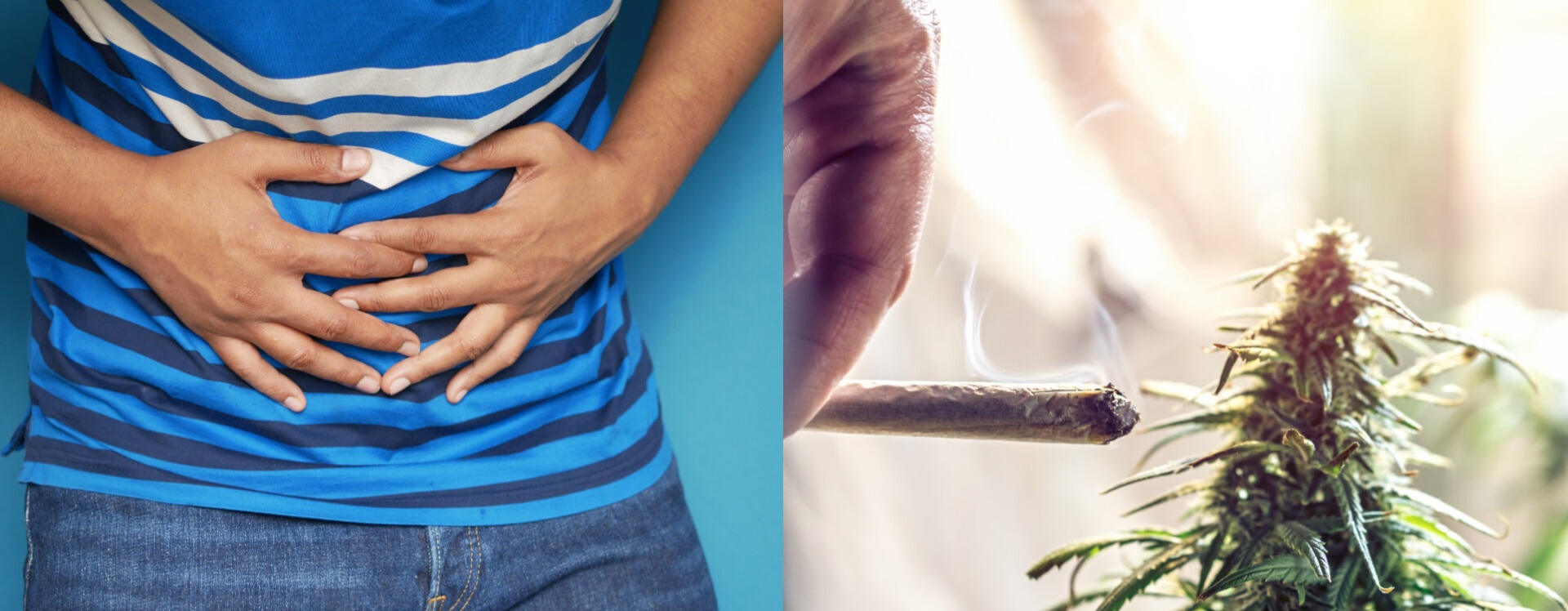If you or someone you know suffers from Irritable Bowel Syndrome (IBS) or Inflammatory Bowel Disease (IBD), you’re probably well aware of the daily struggles these conditions bring. From constant stomach pain and bloating to urgent trips to the bathroom, the symptoms can be life-disrupting. But here’s some good news: cannabis might just offer some relief.
Cannabis, commonly known as marijuana, has been used for centuries for medicinal purposes. Recently, researchers have been looking into how it might help manage symptoms of IBS and IBD. Let’s dive into what they’ve found in a way that’s easy to understand.
What are IBS and IBD?
Before we get into the cannabis details, it’s essential to know what IBS and IBD are. While both affect the digestive system, they’re different in many ways.
IBS (Irritable Bowel Syndrome) is a common disorder that affects the large intestine. Symptoms include cramping, abdominal pain, bloating, gas, and diarrhea or constipation, or both. Unlike IBD, IBS doesn’t cause inflammation or damage to the intestines.
IBD (Inflammatory Bowel Disease) is a term mainly used for two conditions: Crohn’s disease and ulcerative colitis. Both involve chronic inflammation of the digestive tract. Crohn’s can affect any part of the GI tract from mouth to anus, while ulcerative colitis is limited to the colon and rectum. Symptoms can be severe and include persistent diarrhea, abdominal pain, and even weight loss.
The Role of the Endocannabinoid System
Our bodies have an endocannabinoid system (ECS) that helps regulate various functions, including digestion. The ECS has receptors (CB1 and CB2) that interact with cannabinoids, the active compounds in cannabis. When these receptors are activated, they can influence pain, inflammation, and even bowel movements.
Cannabis and IBS
Many people with IBS have turned to cannabis for symptom relief, and there’s some science to back it up. Here’s a look at what research suggests:
- Pain Relief: One of the most debilitating symptoms of IBS is abdominal pain. Studies have shown that cannabinoids can help reduce pain. For example, a study published in the journal Pain found that cannabis reduced pain and improved the quality of life in people with IBS. The cannabinoids in cannabis can modulate the pain signals sent to the brain, offering relief.
- Reducing Inflammation: Although IBS isn’t an inflammatory disease like IBD, low-grade inflammation is often present. Cannabis has anti-inflammatory properties that can help reduce this inflammation. A study in Clinical Gastroenterology and Hepatology highlighted that patients using cannabis reported fewer flare-ups and less severe symptoms.
- Regulating Bowel Movements: Cannabis might also help with the irregular bowel movements that characterize IBS. Some cannabinoids can slow down or speed up gut motility, which can help normalize bowel movements. This can be particularly beneficial for those who swing between diarrhea and constipation.
Cannabis and IBD
For those with IBD, the potential benefits of cannabis are even more pronounced due to the inflammatory nature of the disease. Here are some key findings:
- Reducing Inflammation and Healing the Gut: Cannabinoids have been shown to reduce inflammation in the gut. A study in Gastroenterology found that cannabis use was associated with reduced inflammation and even healing of the gut lining in patients with Crohn’s disease.
- Symptom Relief: Beyond reducing inflammation, cannabis can help alleviate other IBD symptoms. A survey published in the Journal of Gastroenterology and Hepatology reported that patients using cannabis experienced less pain, fewer bowel movements, and improved appetite and sleep.
- Quality of Life: Living with IBD can be incredibly challenging, affecting every aspect of life. Several studies have indicated that cannabis use can improve the overall quality of life for IBD patients. They reported feeling less stressed and more able to manage their symptoms.
How to Use Cannabis for IBS and IBD
If you’re considering trying cannabis for IBS or IBD, here are some things to keep in mind:
- Forms of Cannabis: Cannabis can be consumed in various forms, including smoking, vaping, edibles, and oils. Each form has different onset times and effects. For example, smoking or vaping provides quick relief, while edibles take longer to kick in but offer longer-lasting effects.
- Types of Cannabis: There are different strains of cannabis, primarily categorized as indica, sativa, and hybrids. Indica strains are often recommended for pain relief and relaxation, while sativa strains are more energizing. Hybrids offer a mix of effects.
- Dosage: Finding the right dosage is crucial. Start with a low dose and gradually increase until you find what works best for you. It’s always a good idea to consult with a healthcare provider, especially one knowledgeable about medical cannabis.
- Legal Considerations: The legality of cannabis varies by location. Make sure to check your local laws and regulations before using cannabis for medical purposes.
Final Thoughts
Cannabis isn’t a cure-all, but for many people with IBS and IBD, it offers a natural way to manage symptoms and improve quality of life. The research, while still in early stages, is promising. If you’re considering cannabis as a treatment option, consult with a healthcare provider to ensure it’s safe and appropriate for you.
Remember, every individual is different, and what works for one person might not work for another. But with the growing body of evidence and personal testimonials, cannabis is certainly worth considering as part of a comprehensive approach to managing IBS and IBD.

